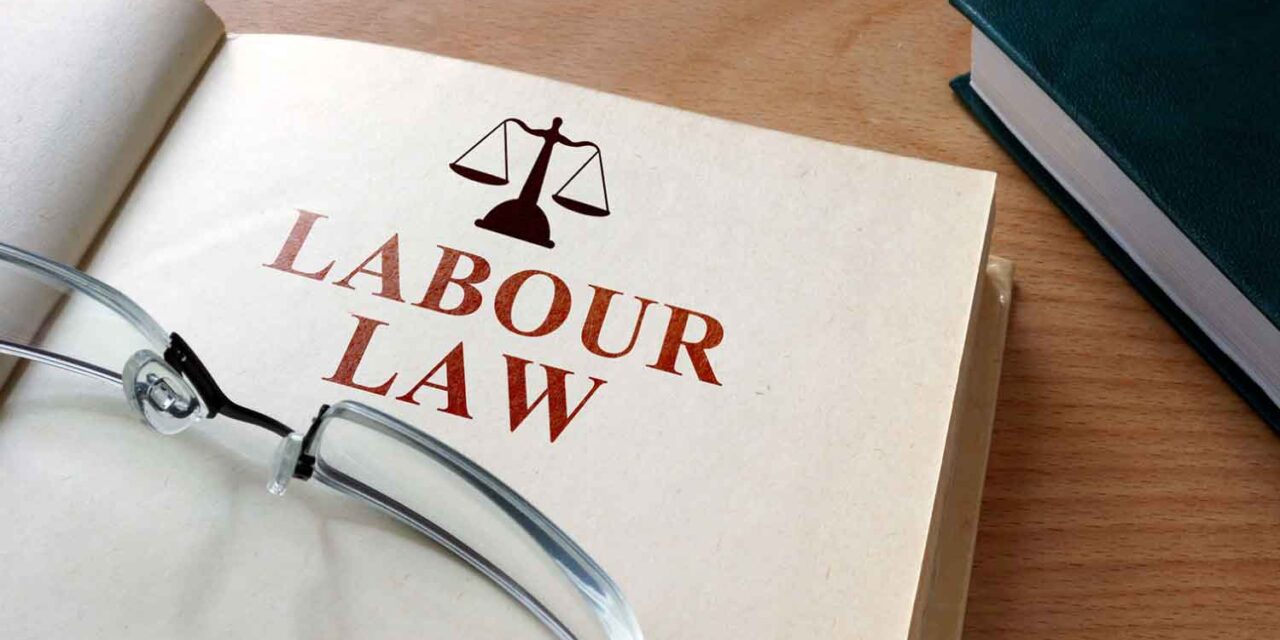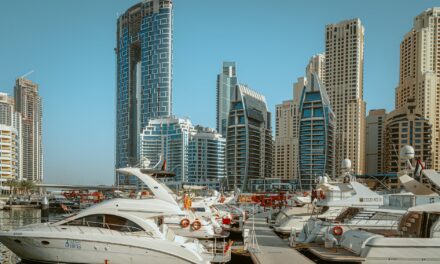The UAE Ministry of Human Resources and Emiratisation, also known as the Ministry of Labour, plays a crucial role in shaping and regulating labour policies in the United Arab Emirates. I’ve come to learn that this government body is dedicated to fostering a robust labour market that benefits both employers and employees, ensuring comprehensive and sustainable development throughout the country.
During my research, I discovered that one of the Ministry’s key responsibilities is the issuance of work permits, as it is illegal for a person to work in the UAE without a valid work permit according to the UAE Labour Law. The Ministry also provides a range of e-services and support channels for stakeholders, as it aims to create a transparent, supportive, and accessible environment for businesses and workers alike in the UAE.
Furthermore, the Ministry plays a key role in the ongoing Emiratisation efforts aimed at increasing workplace inclusion and providing more opportunities for UAE nationals in the private sector. This not only highlights their commitment to upholding the welfare and rights of workers but also demonstrates their drive to create a sustainable and diversified economy for the future of the nation.
UAE Ministry of Labour Overview
Ministry of Human Resources and Emiratisation (MOHRE)
The UAE Ministry of Labour, also known as the Ministry of Human Resources and Emiratisation (MOHRE), is an essential part of the government responsible for developing and implementing policies and regulations related to employment and labour relations in the UAE. Through their efforts, they strive to create a balanced and productive work environment that benefits both employers and employees. Their official portal provides a wealth of information on various labour-related topics, including work permits, labour laws, and employment rights.
As part of my research, I found that the MOHRE plays a vital role in ensuring that employer-employee relations are maintained, and labour rights are protected within the private sector. They are also responsible for enforcing the UAE Labour Law, which encompasses various aspects of employment, including work permits, wages, working hours, and much more. It is essential for workers in the UAE to have a valid work permit, as it is illegal to work without one according to Article 6 of the Federal Decree Law No. 33 of 2021 on the Regulation of Labour Relations in the Private Sector (source).
Roles and Responsibilities
The roles and responsibilities of MOHRE are vast, as they provide oversight and regulation for various aspects of employment within the private sector. Some of their primary functions include:
- Issuing and renewing work permits
- Regulating labour relations and resolving disputes
- Monitoring compliance with labour laws and regulations
- Implementing policies to support the growth of the Emirati workforce
- Promoting a safe and healthy work environment
One particularly noteworthy recent development in the UAE’s labour landscape is the introduction of an unemployment insurance scheme, set to take effect in 2023. This initiative will cover workers in both the private and public sectors, providing 60% of a worker’s basic salary (up to AED 20,000) as compensation in the event of unemployment (source). MOHRE will play a significant role in administering this new program and ensuring its smooth implementation.
In conclusion, the Ministry of Human Resources and Emiratisation serves a crucial function in upholding the rights and interests of workers in the UAE. By continuing to develop and enforce labour-related policies and regulations, MOHRE aims to create a balanced, safe, and productive work environment for all.
UAE Labour Law
Work Permits
As someone who has researched the UAE Labour Law, I can tell you that work permits are a crucial part of employment in the UAE. According to the Federal Decree Law No. 33 of 2021, it is illegal to work without a valid work permit issued by the Ministry of Human Resources and Emiratisation (MoHRE). Work permits ensure that employees are legally employed and receive the appropriate benefits and protections under the law.
Recruitment
Recruitment in the UAE is regulated by the UAE Labour Law to ensure a fair and transparent process. The Federal Decree Law No. 33 of 2021 applies to all establishments, employers, and workers in the private sector, excluding certain categories such as employees of federal and local government entities, armed forces, police, and security, as well as domestic workers. It’s essential for employers and recruiters to adhere to the guidelines set forth by the law to avoid any compliance issues.
Working Hours
In my knowledge of UAE Labour Law, the regulation of working hours is an important aspect for employee well-being. Generally, employees should not work more than eight hours a day or 48 hours a week. During the month of Ramadan, the working hours are reduced to six hours a day or 36 hours a week for Muslim employees.
Additionally, employees are entitled to a one-hour break after five consecutive hours of work. For work conducted in potentially hazardous areas or under difficult circumstances, the working hours might be reduced, ensuring employees’ health and safety.
Termination of Employment
Termination of employment in the UAE is also subject to the provisions of the UAE Labour Law. Both the employer and the employee have the right to terminate the employment contract, provided certain conditions are met. An employment contract may be terminated in the following situations:
- Mutual agreement between the employer and employee
- Expiry of the fixed-term contract
- Resignation or dismissal in accordance with the terms of the contract
It’s crucial to know these aspects of termination to ensure compliance with the law and avoid potential legal disputes. My understanding of the new UAE Labour Law is that it aims to provide a fair and transparent mechanism for employers and employees, which is essential for maintaining a healthy work environment.
Employment Types
As a writer focusing on the UAE Ministry of Labour, I’d like to provide information about different employment types. The new UAE labor law offers various work models, allowing employees more flexibility and catering to the diverse needs of the job market. In this section, I will discuss full-time, part-time, and temporary employment types.
Full-Time
Full-time employment is the traditional work model in the UAE. In my research, I’ve found that full-time employees often work an average of 40 hours a week, although the specific hours may vary depending on the employer’s requirements. Full-time workers are entitled to benefits as per the UAE labor laws, which may include health insurance, annual leaves, and end-of-service benefits.
Part-Time
Part-time employment offers greater flexibility for employees, as these workers have the opportunity to work for fewer hours compared to their full-time counterparts. Under the new labor law, part-time employment has been introduced as one of the work models available to employees in the private sector. In my understanding, part-time workers may have the chance to engage and commit to multiple job opportunities, and employers can also benefit from hiring employees on a part-time basis to meet their fluctuating work demands.
Temporary
Temporary employment is another work model that has gained popularity in the UAE job market. These positions are ideal for short-term projects, seasonal work, and interim staffing needs. During my research, I observed that temporary employees often work under fixed-term contracts, which outline the duration of their employment and the terms of their contractual relationship. This may vary from a few weeks to several months, depending on the project’s requirements and the employer’s discretion. Temporary positions can serve as an opportunity for employees to gain experience, showcase their skills, and potentially secure long-term employment with an organization.
E-Services and Support
As someone who often uses the UAE Ministry of Labour’s e-services, I can attest that they provide an excellent range of facilities for both employers and employees. These services can be easily accessed through their online platforms, such as Tasheel, eNetwasal, and technical support.
Tasheel
Tasheel is a valuable system available for establishments, offering a single platform to handle various requests related to employees, owners, and more. Some of the services provided by Tasheel include:
- Opening a new establishment
- Updating an existing establishment
- Adding or modifying owners
- Adding or modifying PRO
- Requesting an e-signature card
- Activating a cancelled establishment
The Tasheel website is user-friendly, and I often find the necessary information easily accessible. It works well with most browsers such as Google Chrome and Opera, but I’ve found the best experience using Internet Explorer.
eNetwasal
eNetwasal is another valuable platform, offering a range of enquiry services for individuals and employers. Here are a few key features and services available through eNetwasal:
- Fees and fines inquiries
- Flexible work permits
- Labour card status
- Work permit cancellation
- Job offer inquiries
Similar to Tasheel, eNetwasal is optimized for use on various web browsers, including Internet Explorer, Opera, and Google Chrome.
Technical Support
The UAE Ministry of Labour ensures that users have access to technical assistance when facing issues while using their e-services. The official portal of the UAE government provides guidance and tutorials on eServices to help users navigate and complete their respective tasks.
In addition to the online guidance, users may also contact the Ministry of Human Resources & Emiratisation’s hotline at 800-60, where customer care representatives are available to assist with any queries or technical issues users might face.
In my experience, their technical support team is knowledgeable and efficient, ensuring a smooth resolution to any problems.
Resolutions and Initiatives
Forced Labour
In my research, I found that the UAE has taken several steps to address forced labour and protect workers’ rights. One major step has been the implementation of the Federal Decree-Law No. 33 of 2021 Regarding the Regulation of Labour Relations. This law aims to enhance the efficiency of the UAE labour market by promoting the attraction and retention of future skills and talents while providing an attractive business environment for employers1.
Another initiative undertaken by the UAE government is the Ministerial Resolution No. 279 of 2020, which addresses employment stability and remote working due to the COVID-19 pandemic2. This resolution provides a clear framework for employers to navigate various situations, including working from home, paid leave, unpaid leave, and temporary or permanent salary reductions3. Both of these initiatives showcase the UAE’s commitment to creating a secure and stable workforce.
Employee Rights
The protection of employee rights is a key priority for the UAE Ministry of Labour. To ensure that employees are treated fairly, the UAE Labour Law mentioned earlier also addresses issues related to harassment, bullying, physical violence, and psychological abuse against employees4.
Furthermore, the government has launched a program to encourage the employment of Emirati nationals in the private sector. Ministerial Resolution No. 279 of 2022 deals with monitoring mechanisms of Emiratisation rates in the private sector and imposes contributions on establishments that do not comply with the requirements5.
In summary, the UAE Ministry of Labour is actively working on initiatives and resolutions to promote a safe and secure workforce. The combination of their efforts in addressing forced labour and employee rights showcases their dedication to creating a prosperous labour market.

























